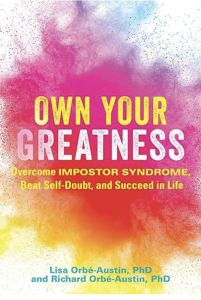Join getAbstract to access the summary!

Join getAbstract to access the summary!
Lisa Orbé-Austin and Richard Orbé-Austin
Own Your Greatness
Overcome Impostor Syndrome, Beat Self-Doubt, and Succeed in Life
Ulysses Press, 2020
What's inside?
Impostor syndrome can hobble your career and well-being, but you can beat it.
Recommendation
Estimates say that 70% of the population struggles with an intense sense of self-doubt – impostor syndrome. Oscar winner Tom Hanks and former Facebook COO Sheryl Sandberg say they are among that number, proof that even great success is not a guaranteed antidote. Psychologists Lisa and Richard Orbé-Austin present a straightforward program for confronting and overcoming impostor syndrome. They focus on replacing counterproductive coping mechanisms, building a support system and revising negative self-talk.
Summary
About the Authors
Lisa Orbé-Austin, PhD the co-founder of Dynamic Transitions Psychological Consulting, is a licensed psychologist and executive coach. Richard Orbé-Austin, PhD is the founding director of NYU’s Graduate Student Career Development Center. He is a psychologist, executive coach and organizational consultant.

















Comment on this summary